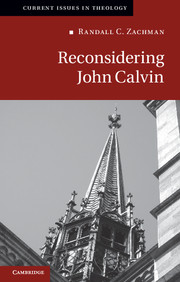Book contents
- Frontmatter
- Contents
- Abbreviations
- Introduction
- 1 The beauty and terror of the universe
- 2 The bond and critique of all social union
- 3 The one elect people of God
- 4 The restoration of Israel by gospel and law
- 5 The comfort and the challenge of love
- 6 Hoping for all others, fearing for myself
- Conclusion
- Index
- References
1 - The beauty and terror of the universe
John Calvin and Blaise Pascal
Published online by Cambridge University Press: 05 June 2012
- Frontmatter
- Contents
- Abbreviations
- Introduction
- 1 The beauty and terror of the universe
- 2 The bond and critique of all social union
- 3 The one elect people of God
- 4 The restoration of Israel by gospel and law
- 5 The comfort and the challenge of love
- 6 Hoping for all others, fearing for myself
- Conclusion
- Index
- References
Summary
The subject of this chapter is Calvin’s understanding of the universe, and we will consider what he says about the stars, the planets, and the sun. This was an area of passionate interest to Calvin, and so I want to consider what he thought about this issue, and why he thought about it the way he did. I am especially intrigued by the phrase he uses in which he describes astronomy as “the alphabet of theology.” I would like to explore why he says this, and the various dimensions of that statement. I will then bring in Blaise Pascal, who points out, that with the invention of the telescope and the microscope, the universe is not only beautiful, which Pascal always thought it was, but is also terrifying. That may also explain, I think, why this theme has virtually disappeared in theology. I actually find it intriguing that there are two Frenchmen, Pascal and Calvin, who are theologically interested in the universe, and I cannot really think of anyone else.
So to begin, I have first to create space for this issue in Calvin. One of the most hotly contended issues in Calvin scholarship concerns whether, in fact, the self-revelation of God the Creator in the universe is available in any kind of way to human beings after the fall of Adam. Calvin does not seem to be terribly optimistic at times when he talks about this issue. Echoing Paul in 1 Corinthians 1, Calvin says, “This magnificent theater of heaven and earth, crammed with innumerable miracles, Paul calls ‘the wisdom of God.’ Contemplating it, we ought in wisdom to have known God, but because we have profited so little by it, Paul calls us to the faith of Christ, which, because it appears foolish, the unbelievers despise.” So it seems that the self-revelation of God in Creation would have been something from which we could have profited by contemplating it, but because we profited so little by it, Paul calls us to the preaching of Christ, which we regard as foolish. This, in fact, is the rhythm of Calvin’s thought, that he passes from the knowledge of God the Creator to the knowledge of God the Redeemer, and uses this text in the Institutes as his transitional text, 1 Corinthians 1.
- Type
- Chapter
- Information
- Reconsidering John Calvin , pp. 6 - 34Publisher: Cambridge University PressPrint publication year: 2011

